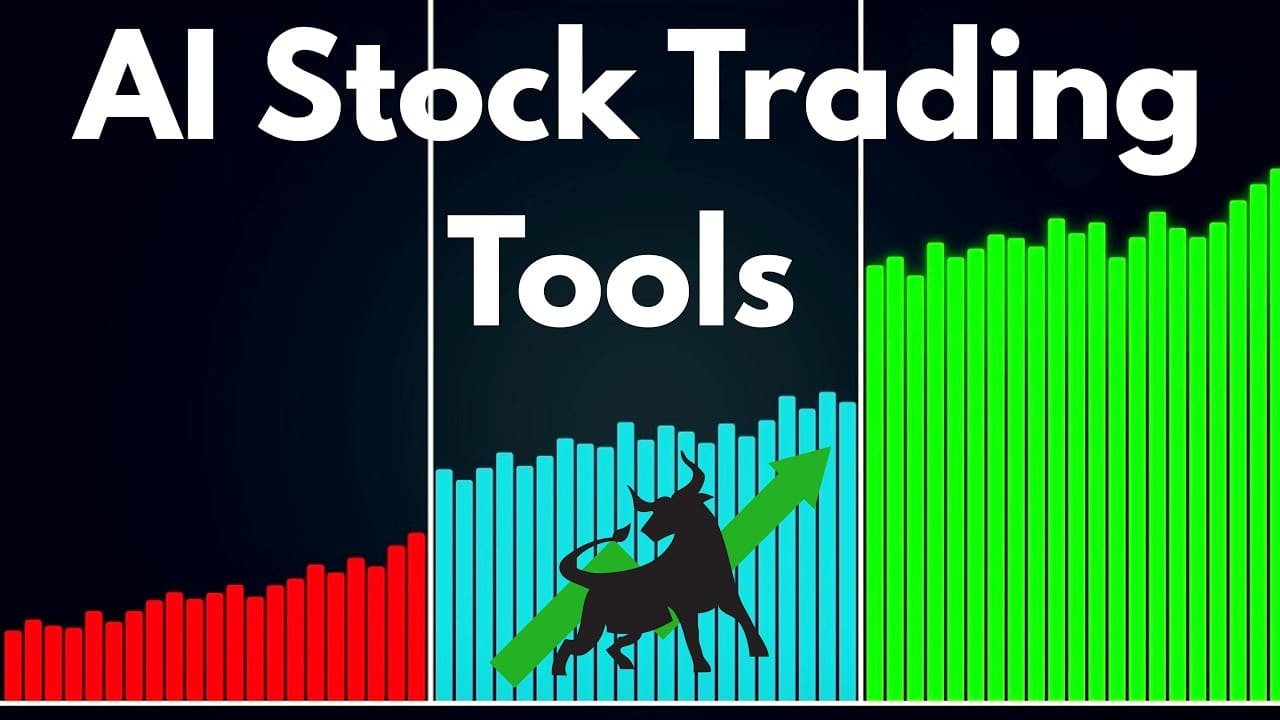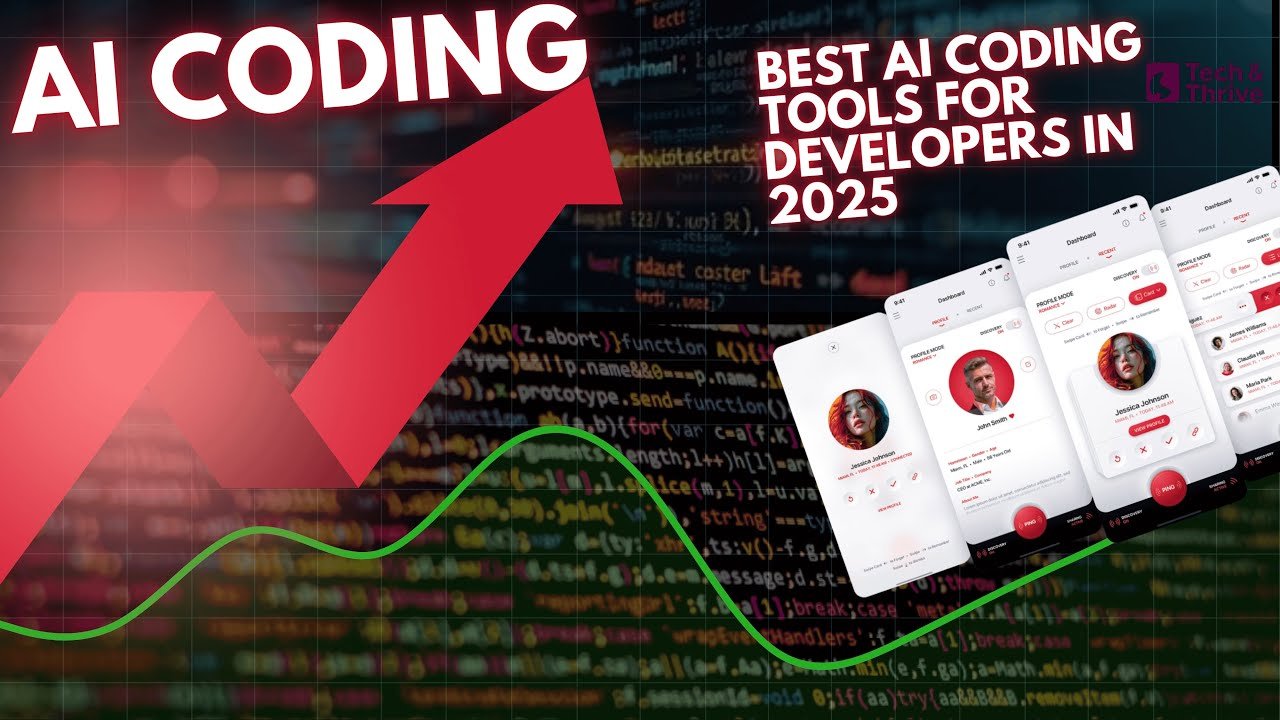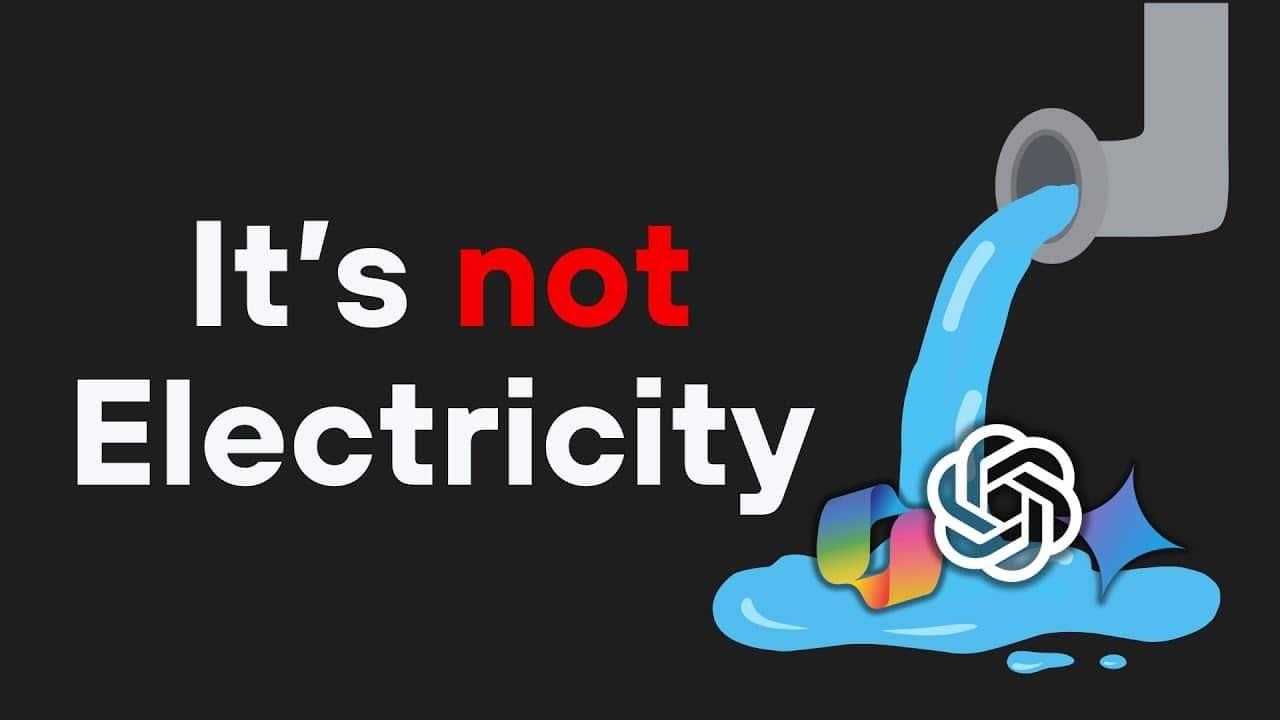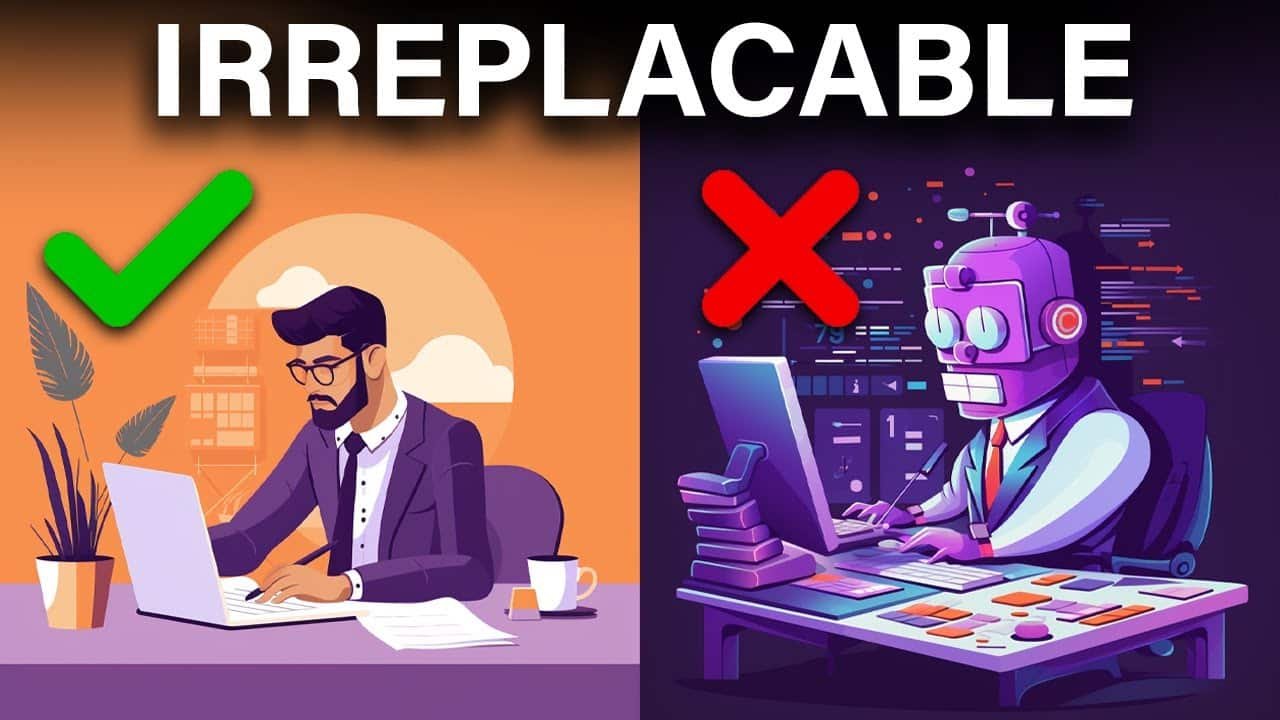AI-Driven ERP Systems: Boosting Business Growth in 2025
Enterprise Resource Planning (ERP) systems have been around for years, helping businesses manage operations, finances, and customer data in one place. But with artificial intelligence (AI) stepping in, ERP systems are becoming smarter, faster, and more efficient. In this blog post, I will explain what AI-driven ERP systems are, why they matter, and how they can transform the way businesses operate.
What is an AI-Driven ERP System?
An AI-driven ERP system is a business management software that integrates artificial intelligence to automate tasks, analyze data, and provide smart insights. Traditional ERP systems require manual input and decision-making, but AI-powered ones can predict trends, suggest actions, and optimize processes on their own.
Why AI in ERP is a Game Changer
- Automation of Repetitive Tasks
AI eliminates the need for manual data entry, report generation, and routine decision-making. This saves time and reduces human errors. - Smart Data Analysis
AI can process large amounts of data and provide real-time insights. This helps businesses make better decisions based on facts, not guesses. - Improved Forecasting
AI-driven ERP systems analyze past trends and predict future outcomes. This is useful for inventory management, financial planning, and resource allocation. - Better Customer Service
AI chatbots and virtual assistants can handle customer queries quickly. AI also helps businesses personalize their services based on customer behavior. - Cost Savings
Automating processes and optimizing resources means businesses can reduce costs in multiple areas, from labor to supply chain management.
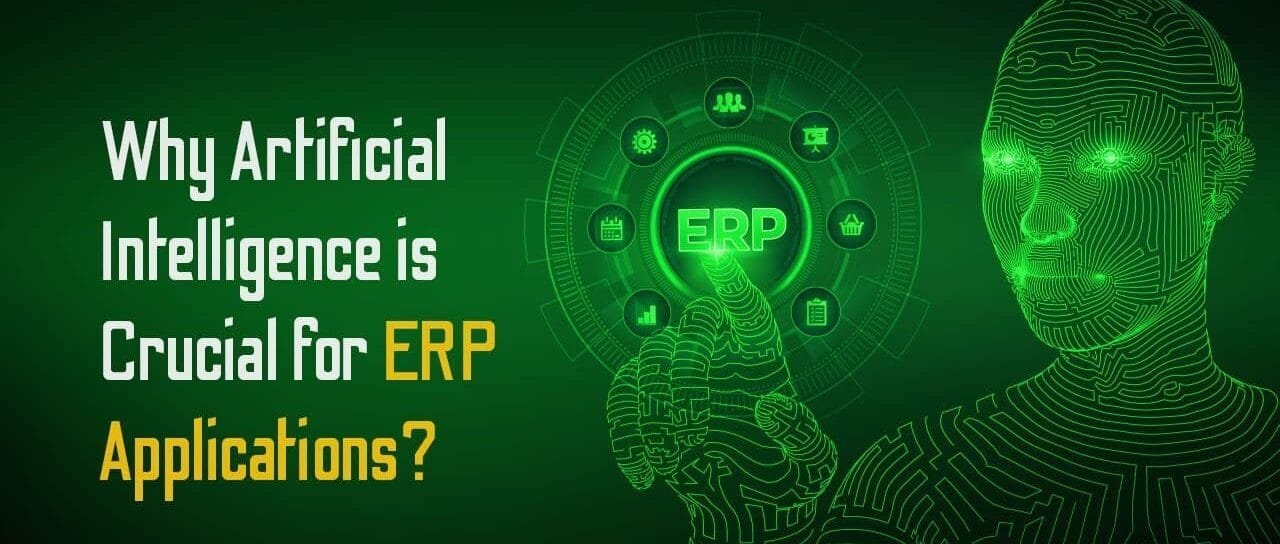
AI-Driven ERP Systems: Benefits, Cost Savings, Job Impact, and Top Service Providers
Benefits of AI-Driven ERP Systems
- Automation of Repetitive Tasks
AI reduces manual effort by automating data entry, invoice processing, and reporting. This leads to faster, more accurate operations. - Improved Decision-Making
AI-powered analytics provide real-time insights, helping businesses make data-driven decisions and forecast future trends more accurately. - Enhanced Customer Experience
AI-powered chatbots and recommendation systems personalize customer interactions, leading to better service and increased customer satisfaction. - Better Compliance and Security
AI helps in monitoring compliance with industry regulations and detects potential security threats in ERP systems. - Efficient Inventory and Supply Chain Management
AI-driven ERP systems predict demand, optimize inventory levels, and reduce wastage, improving supply chain efficiency.
How Businesses Can Use AI in ERP
- Finance Management – AI can detect fraudulent transactions, automate invoice processing, and provide financial forecasts.
- Human Resources – AI helps in recruitment by scanning resumes, shortlisting candidates, and even analyzing employee performance.
- Inventory & Supply Chain – AI predicts demand, optimizes inventory, and prevents overstocking or shortages.
- Sales & Marketing – AI-driven ERP systems analyze customer behavior to suggest personalized marketing strategies.
Money-Saving Potential of AI-Driven ERP
- Reduction in Operational Costs
AI automates tedious processes, reducing the need for manual labor and decreasing human errors that can lead to financial losses. - Lower IT Maintenance Costs
AI-driven ERP solutions are often cloud-based, reducing the need for expensive on-premise hardware and maintenance costs. - Optimized Resource Allocation
AI analyzes employee productivity and suggests better workforce distribution, minimizing unnecessary staffing costs. - Fewer Errors and Losses
AI-powered predictive maintenance can prevent costly system failures and downtime, ensuring smoother business operations.
Employee Impact: Job Loss and Future Work Trends
AI-driven ERP systems bring efficiency but also raise concerns about job security.
- Jobs at Risk: Roles involving repetitive tasks, such as data entry, payroll processing, and basic customer support, may be replaced by automation.
- New Job Opportunities: AI-driven ERP creates demand for IT professionals, AI specialists, and data analysts to manage and optimize these systems.
- Workforce Adaptation: Companies will need to reskill employees to work alongside AI rather than being replaced by it. The future workforce will focus more on analytical and strategic tasks.
How to Build an AI-Driven ERP System & Profit from It
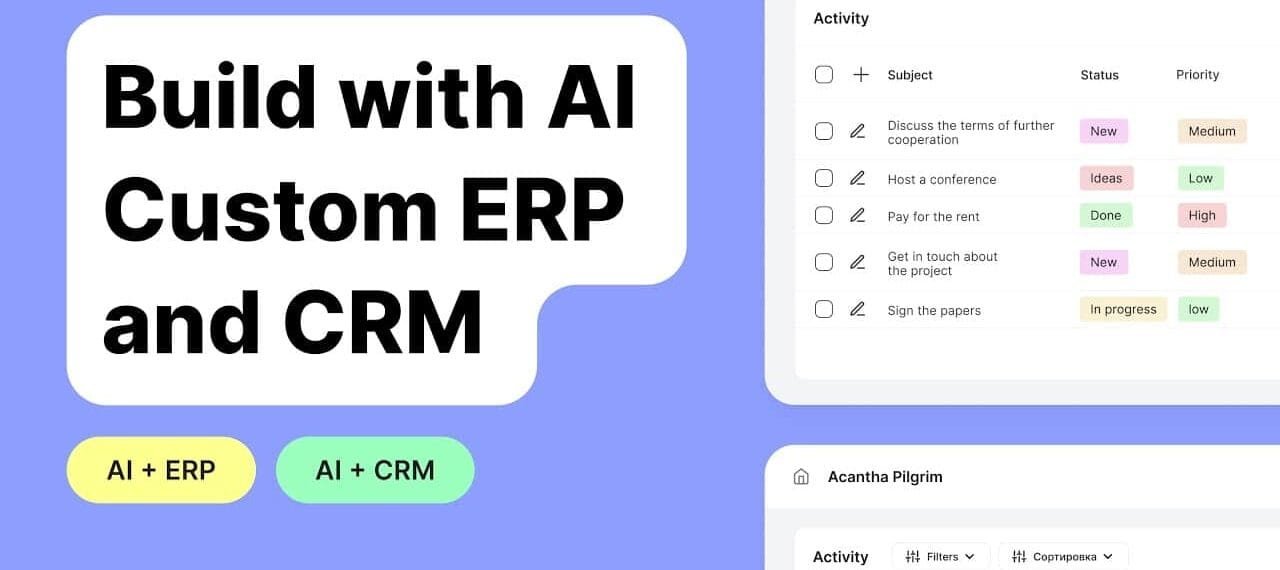
1. Steps to Build an AI-Driven ERP System
Step 1: Define Features & Modules
Start by deciding which business functions your ERP will support. Common modules include:
✅ Finance & Accounting – AI automates invoicing, financial forecasting, and fraud detection.
✅ Human Resources – AI-based hiring, employee analytics, and performance tracking.
✅ Supply Chain & Inventory – AI predicts demand, optimizes stock levels, and reduces waste.
✅ Sales & CRM – AI-driven lead scoring, customer engagement, and predictive marketing.
✅ Manufacturing & Logistics – AI-powered production planning and smart automation.
Step 2: Choose the Right Tech Stack
💻 Backend – Python (Django, Flask), Java (Spring Boot), Node.js
🌐 Frontend – React.js, Angular, Vue.js
📊 Database – PostgreSQL, MySQL, MongoDB
🤖 AI/ML Frameworks – TensorFlow, PyTorch, OpenAI API
☁️ Cloud & Deployment – AWS, Google Cloud, Azure
⚡ Big Data Tools – Apache Spark, Hadoop
Step 3: AI Model Training & Data Collection
AI models in ERP require historical business data. You’ll need:
- Supervised Learning – Train models on labeled past data (e.g., sales records for forecasting).
- Unsupervised Learning – Cluster data for identifying hidden patterns (e.g., customer segmentation).
- Reinforcement Learning – Improve decision-making AI through continuous learning.
Training AI models may take weeks or months, depending on:
🚀 Data Volume – More data improves accuracy but increases processing time.
🎯 Complexity – Simple automation takes days; predictive analytics may take months.
💰 Computational Power – High-performance GPUs/TPUs reduce training time.
Step 4: Deployment & Scaling Strategy
- On-Premise vs. Cloud: Choose cloud for flexibility or on-premise for security.
- Microservices Architecture: Ensure modular, scalable development.
- API Integrations: Connect ERP with existing business software.
- Security & Compliance: Use encryption, multi-factor authentication, and access control.
2. How Much Does It Cost to Build an AI-Driven ERP?
The cost depends on factors like features, team size, and AI complexity.
Estimated Cost Breakdown
| Component | Cost Estimate (USD) |
|---|---|
| AI Model Development | $10,000 – $50,000 |
| Backend & Database | $15,000 – $40,000 |
| Frontend (UI/UX) | $10,000 – $30,000 |
| Cloud & Hosting | $5,000 – $20,000 per year |
| Security & Compliance | $5,000 – $15,000 |
| Maintenance & Updates | $10,000 – $30,000 per year |
| Total Cost | $50,000 – $150,000+ |
If using AI-as-a-Service (AIaaS) like OpenAI API, costs may be lower, but you’ll have ongoing API usage fees.
3. How Much Profit Can You Make?
Revenue Models for AI-Driven ERP
💰 Subscription Model – Charge businesses a monthly or annual fee (e.g., $99/user/month).
💰 One-Time Licensing – Sell ERP licenses for a fixed price ($10,000 – $100,000 per company).
💰 Customization & Consulting – Offer ERP setup, integration, and training as paid services.
💰 AI Insights & Reports – Sell AI-powered business insights and predictions.
Profit Potential
- SMBs (Small & Medium Businesses): Earn $100K-$500K annually with affordable SaaS pricing.
- Large Enterprises: Multi-million-dollar contracts if targeting big corporations.
- ROI (Return on Investment): If you invest $150K and onboard 500 customers at $99/month, you generate $49,500/month or $594,000/year in revenue!
4. Benefits & Future Potential of AI-ERP
💡 Business Benefits
✔️ Reduces Costs – Automation saves labor and operational costs.
✔️ Boosts Productivity – AI minimizes human errors and speeds up decision-making.
✔️ Improves Forecasting – AI predicts market trends and optimizes resources.
✔️ Enhances Security – AI detects fraud and prevents cyber threats.
📉 Risks & Future Challenges
❌ Employee Job Replacement? AI will automate repetitive tasks but create new tech jobs.
❌ High Initial Cost? AI-ERP is expensive initially but saves money long-term.
❌ Data Privacy Issues? Businesses must comply with GDPR, CCPA, and other regulations.
Top AI-Driven ERP Systems in 2025
- SAP S/4HANA – Uses AI for predictive analytics and automation. Learn more
- Oracle ERP Cloud – Features AI-powered financial planning and procurement. Learn more
- Microsoft Dynamics 365 – Offers AI-driven insights for customer relationship management (CRM). Learn more
- Infor CloudSuite – Uses AI for supply chain optimization. Learn more
- NetSuite ERP – Provides AI-powered business intelligence. Learn more
Final Thoughts
AI-driven ERP systems are not just a trend – they are the future. Businesses that adopt AI-powered ERP solutions can automate processes, make smarter decisions, and stay ahead of competitors. If you’re running a business, investing in AI for your ERP system might be one of the best decisions you make this year.
Do you think AI-driven ERP systems will replace traditional ones completely? Let me know your thoughts in the comments!
I request you to read this as well for better understanding how to grow business with AI agents
“Discover how AI agents can transform your business by automating tasks, improving decision-making, and boosting efficiency. Read more“
FAQ: AI-Driven ERP Systems
1. What is an AI-driven ERP system?
It’s an ERP system that uses AI to automate tasks, analyze data, and provide smart insights.
2. How does AI improve ERP systems?
AI automates processes, enhances decision-making, reduces errors, and improves efficiency.
3. What industries benefit from AI ERP systems?
Manufacturing, retail, healthcare, finance, logistics, hospitality, and e-commerce.
4. What are the key features of AI ERP?
Automation, predictive analytics, fraud detection, workflow optimization, and customer insights.
5. How does AI help in cost savings?
AI reduces labor costs, minimizes errors, optimizes inventory, and improves resource allocation.
6. What are the best AI-driven ERP systems?
SAP S/4HANA, Oracle ERP Cloud, Microsoft Dynamics 365, Infor CloudSuite, and NetSuite ERP.
7. Is AI ERP suitable for small businesses?
Yes, many cloud-based AI ERP solutions are affordable and scalable for small businesses.
8. What is the cost of an AI-driven ERP system?
It varies; cloud-based solutions start from $50–$500 per user/month, while enterprise plans can cost thousands.
9. Can AI ERP replace human employees?
No, it assists rather than replaces employees by automating repetitive tasks.
10. How do I choose the right AI ERP for my business?
Consider your industry, budget, required features, and scalability before selecting a system.
11. How does AI-driven ERP benefit Nusaker?
It automates tasks, improves accuracy, and provides smart insights for better decision-making.
12. How is Nusaker’s AI ERP better than traditional ERP?
It uses machine learning for real-time insights, automation, and adaptive scalability.






